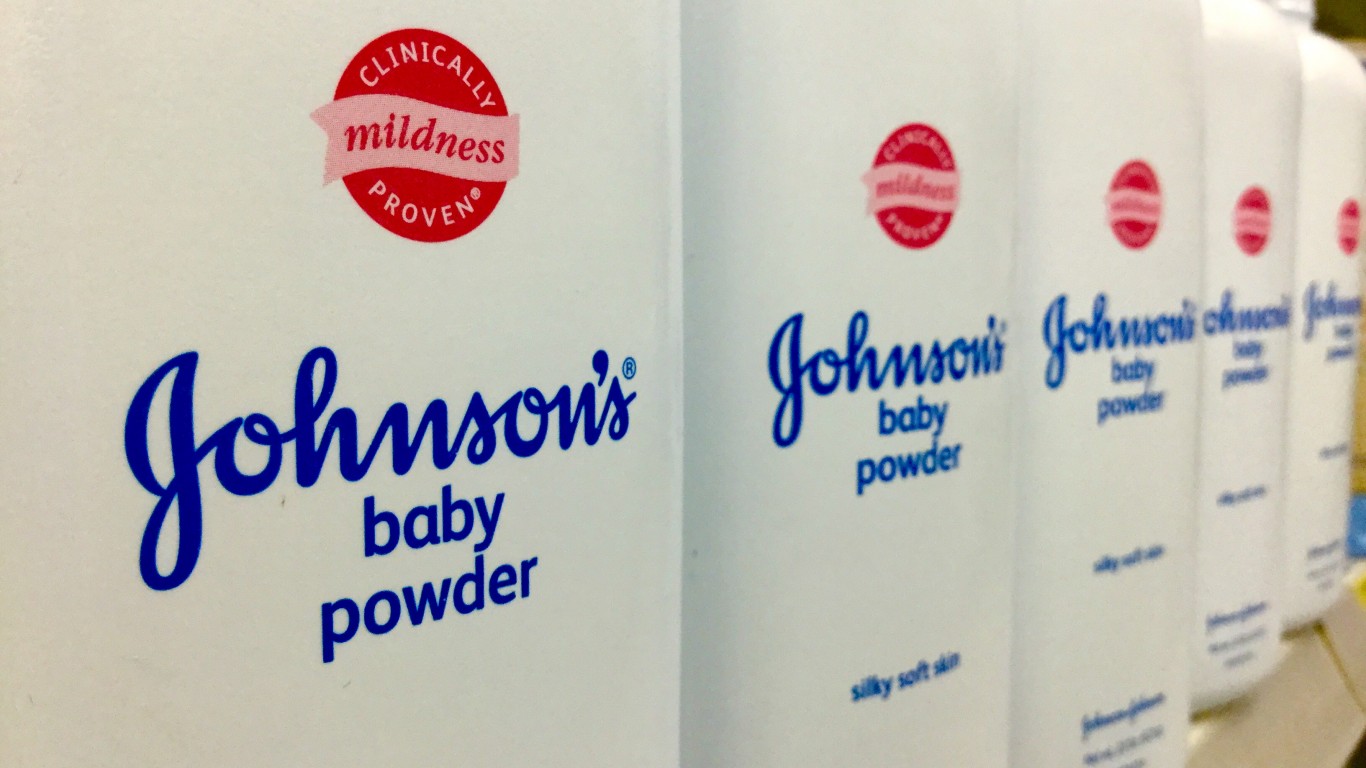Health and Healthcare
How Much More Talc Fallout Will Johnson & Johnson Face After This $29 Million Verdict?

Published:
Last Updated:

A California jury has awarded $29 million to a woman who claimed talcum-powder-based Johnson & Johnson (NYSE: JNJ) products caused her cancer. This ruling is the most recent defeat, out of the pool of more than 13,000 talc-related lawsuits nationwide.
Johnson & Johnson said it would appeal this verdict, citing “serious procedural and evidentiary errors” in the course of the trial. Specifically, the firm said that the lawyers for the woman fundamentally had failed to show its baby powder contains asbestos. The company did not provide further details of the alleged errors during the trial.
On its face, Johnson & Johnson denies that its talc causes cancer, saying numerous studies and tests by regulators worldwide have shown that its talc is safe and asbestos-free. For the record, the company has shown that decades of testing indicated that the use of baby powder was safe and asbestos-free.
The history of talc and asbestos cases against Johnson & Johnson is mixed. The company has won some suits that went to trial. It also faced a $4.7 billion award against it last summer in a case representing 22 women and their families. Johnson & Johnson is still appealing the verdict.
An issue with environmental cases of this sort, including aspects of asbestos cases, is that there is no time limit and quantifying the ultimate financial risk is nearly impossible. Looking at the downside, it is entirely possible that the lifetime’s worth of sales of Johnson’s Baby Powder could be far lower than total damages over time if these cases end up going against the company.
Shares of Johnson & Johnson were last seen down nearly 1% at $138.15, in a 52-week range of $118.62 to $148.99. The consensus analyst target is $144.71.
Thank you for reading! Have some feedback for us?
Contact the 24/7 Wall St. editorial team.